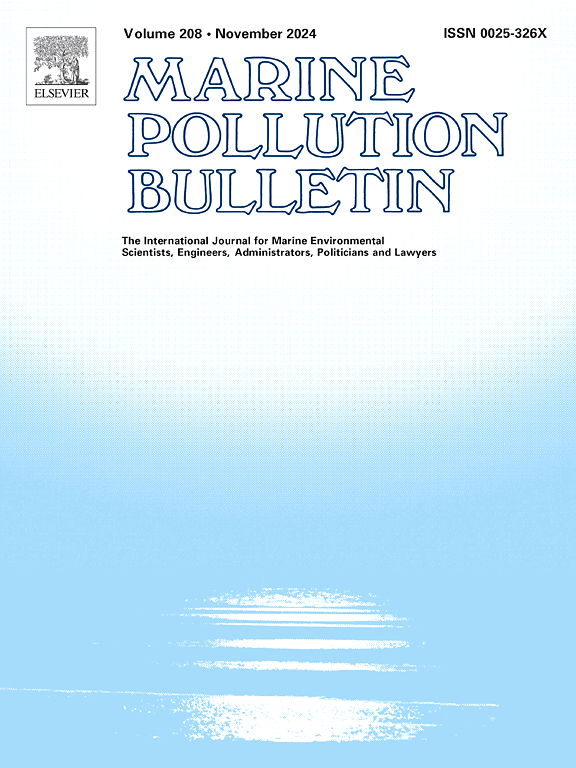微塑料检测与风险评估的进展与挑战:人工智能与标准化方法的融合
IF 4.9
3区 环境科学与生态学
Q1 ENVIRONMENTAL SCIENCES
引用次数: 0
摘要
微塑料由于其持久性和广泛分布,对生态系统和人类健康构成重大威胁。本文全面综述了水生环境、土壤和生物样品中MPs的采样方法,评估了消化和分离等预处理程序。它检查了鉴定技术的应用和局限性,包括微观观察,光谱分析和热分析。该综述强调了人工智能技术在提高检测效率和精度方面的潜力。报告强调必须制定统一的抽样和检测标准协议,以及必须采用系统的风险评估方法来管理与多磺酸盐有关的环境和健康风险。论文最后对未来的研究提出了建议,强调方法的标准化、检测技术的进步、人工智能的整合和全面的健康风险评估。本文综述有助于研究人员全面了解目前主要的人工智能检测技术和风险评估方法,加快构建人工智能监管框架。本文章由计算机程序翻译,如有差异,请以英文原文为准。
Advancements and challenges in microplastic detection and risk assessment: Integrating AI and standardized methods
Microplastics (MPs) pose significant threats to ecosystems and human health due to their persistence and widespread distribution. This paper provides a comprehensive review of sampling methods for MPs in aquatic environments, soils, and biological samples, assessing pre-treatment procedures like digestion and separation. It examines the application and limitations of identification techniques, including microscopic observation, spectroscopic analysis, and thermal analysis. The review highlights the potential of AI technology to enhance detection efficiency and precision. It underscores the necessity of standardized protocols for consistent sampling and detection, and the importance of systematic risk assessment methodologies for managing environmental and health risks associated with MPs. The paper concludes with recommendations for future research, emphasizing the standardization of methods, advancement of detection technologies, integration of AI, and comprehensive health risk assessments. This review will be helpful for researchers to comprehensively understand the current main detection technologies and risk assessment methods of the MP, and to accelerate the establishment of an artificial intelligence regulatory framework for MPs.
求助全文
通过发布文献求助,成功后即可免费获取论文全文。
去求助
来源期刊

Marine pollution bulletin
环境科学-海洋与淡水生物学
CiteScore
10.20
自引率
15.50%
发文量
1077
审稿时长
68 days
期刊介绍:
Marine Pollution Bulletin is concerned with the rational use of maritime and marine resources in estuaries, the seas and oceans, as well as with documenting marine pollution and introducing new forms of measurement and analysis. A wide range of topics are discussed as news, comment, reviews and research reports, not only on effluent disposal and pollution control, but also on the management, economic aspects and protection of the marine environment in general.
 求助内容:
求助内容: 应助结果提醒方式:
应助结果提醒方式:


